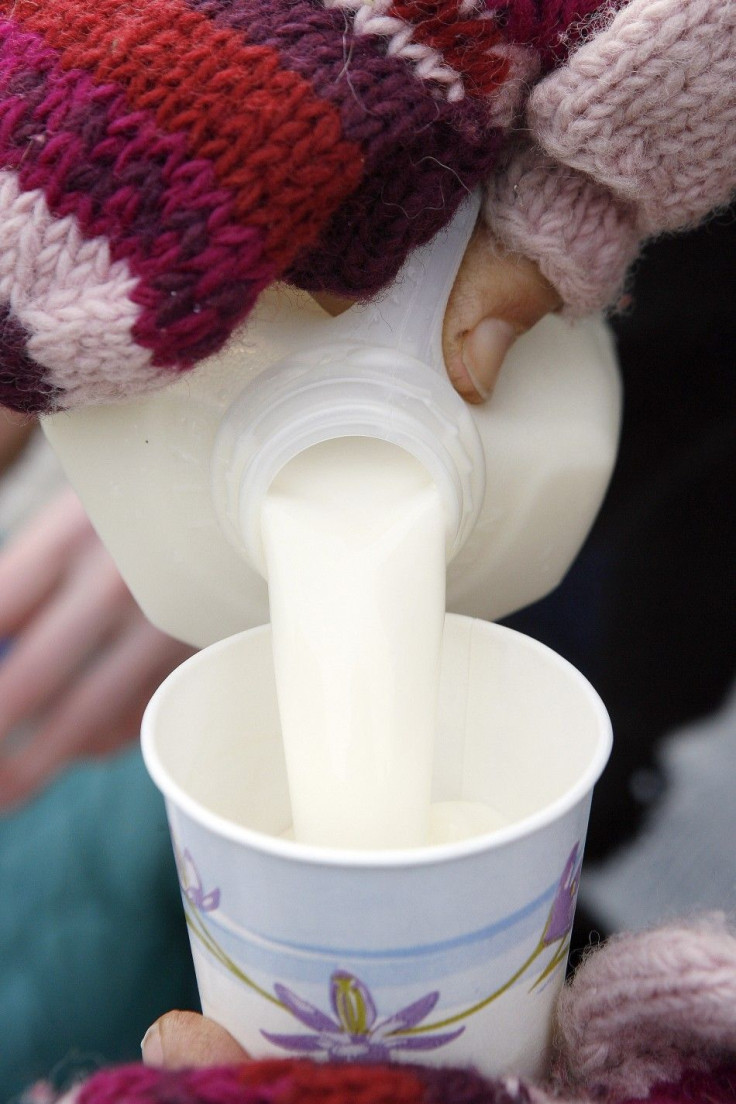Raw Milk Drinkers 150 Times More Likely to Get Sick, Study Says

Raw milk is 150 times more likely to give you potentially dangerous bacterial infections compared with pasteurized milk, according to a new study published online in the journal Emerging Infectious Diseases on Wednesday.
Advocates of raw milk tout the unhomogenized and unpasteurized milk as a health food capable of protecting against infection, diarrhea and tuberculosis. Evidence for those benefits is lacking, said researchers with the Centers for Disease Control and Prevention.
Between 1993 and 2006, health authorities tracked 121 outbreaks of diseases associated with dairy products known to be pasteurized or not. Of those outbreaks, 60 percent of illnesses involved raw milk that resulted in 202 hospitalizations and two deaths.
It is very clear that raw milk is a risk to human health, Barbara Mahon, author of the paper and deputy director of enteric diseases at CDC, told USA Today. I know that there are people who believe that it has health giving or curative properties, but I have never seen any studies that support that, and it's widely discredited in the public health community.
Raw milk does not undergo pasteurization - heating to 161 degrees Fahrenheit (71 degrees Celsius) for 15 seconds before rapidly cooling down - that kills organisms and bacteria. Raw milk proponents say pasteurization destroys beneficial enzymes and bacteria.
Americans consume significantly less raw than pasteurized milk in the United States, making the high number of more outbreaks more surprising.
When you consider that no more than 1 percent of the milk consumed in the United States is raw, it's pretty startling to see that more of the outbreaks were caused by raw milk than pasteurized, Mahon said.
Proponents of raw milk accused the CDC of cherry-picking data.
What consumers need to realize, first of all, is that the incidence of foodborne illnesses from dairy products, whether pasteurized or not, is extremely low, Sally Fallon Morell, president of the Weston A. Price Foundation, a nonprofit organization that advocates for raw milk, said in a statement.
Raw milk does not make up a significant portion of the 24,000 foodborne illnesses reported every year, she said.
Whether pasteurized or not, dairy products are simply not a high risk product, she added.
Raw milk cannot be sold across state borders but the legality of it is otherwise left up to the states; 29 states currently allow the sale of unpasteurized milk.
Outbreaks of diseases attributed to dairy products occurred significantly more in states where raw milk is legal, according to the study.
The CDC said warnings about raw milk have been ineffective to educate consumers. Health officials recommended that all states prohibit the sale of raw milk to reduce outbreaks of foodborne illness from dairy products.
However some see that as unnecessary.
If we banned ground beef, we'd see fewer illnesses related to ground beef products. Judith McGeary, founder of the Farm and Ranch Freedom Alliance, an organization that is against government regulation of farms, said in a statement.
What the data really shows is that raw dairy products cause very few illnesses each year, even though the CDC data indicates that over 9 million people consume it, she said.
The report arrived during a raw-milk-associated outbreak in Pennsylvania and surrounding states. As of Tuesday, 77 people became sickened due to an outbreak of the bacteria campylobacter, which causes diarrhea, fever and abdominal pain. The Pennsylvania Department of Health linked raw milk as the cause of the outbreak.
© Copyright IBTimes 2025. All rights reserved.





















